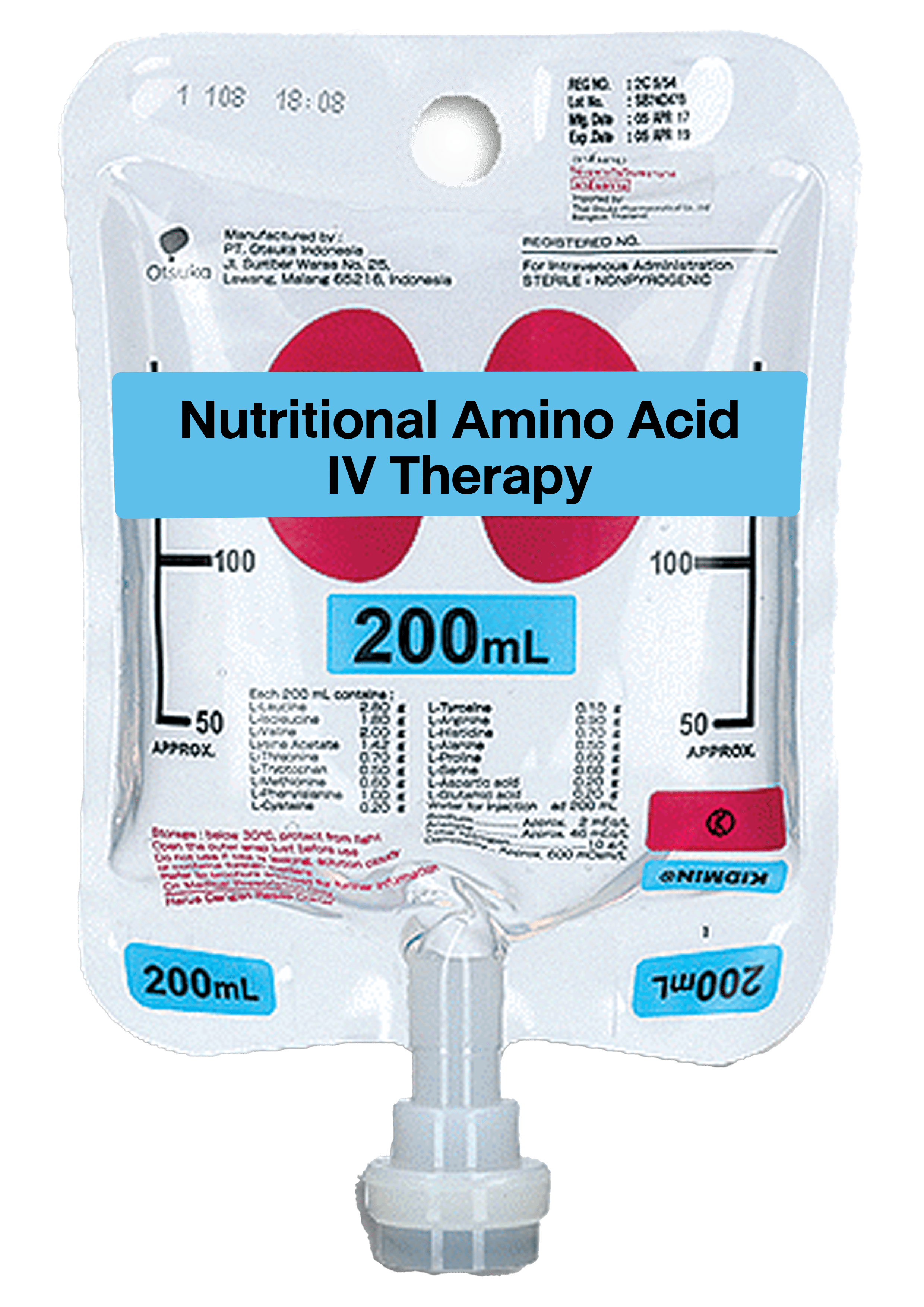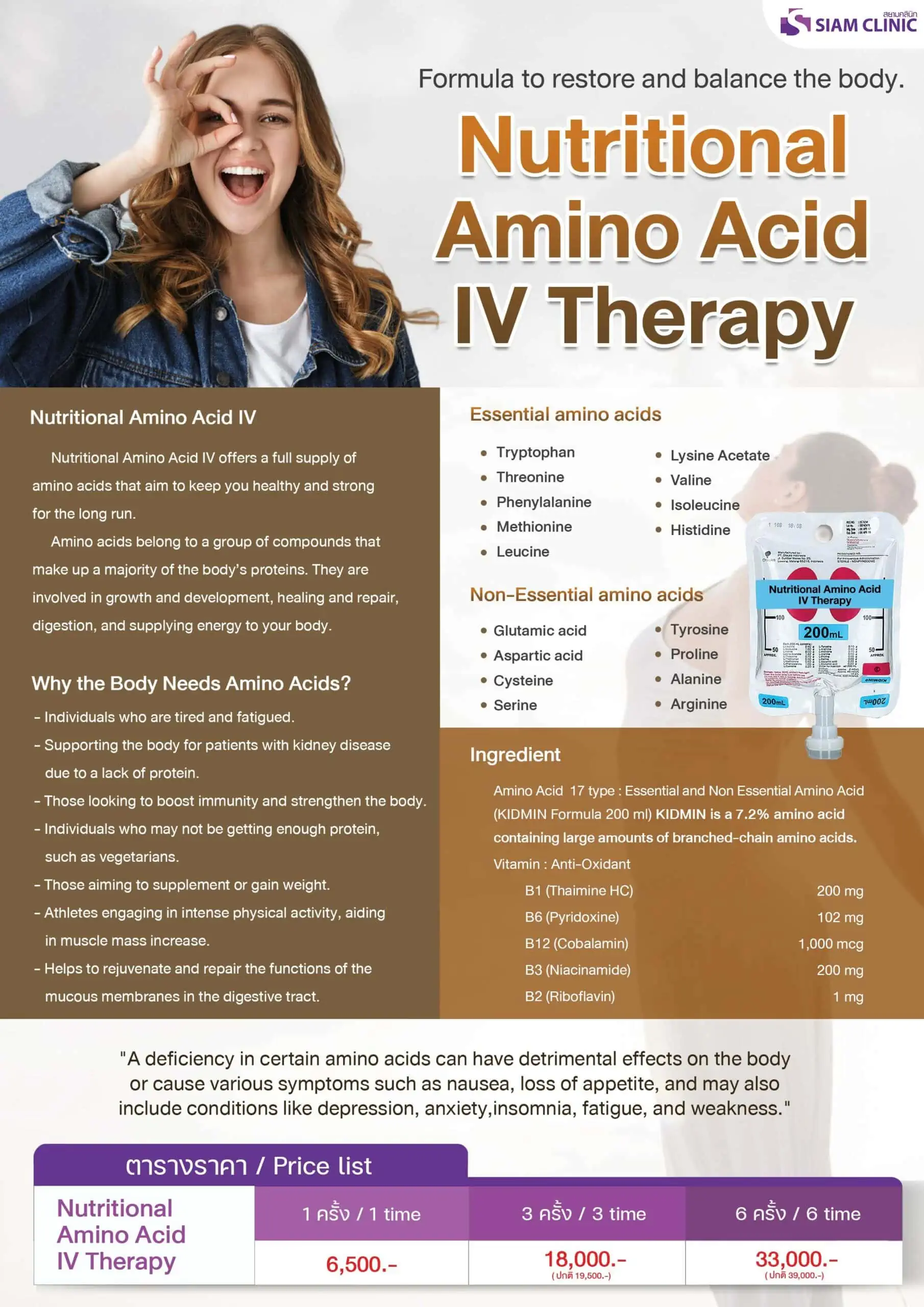A deficiency in certain amino acids can have detrimental effects on the body or cause various symptoms such as nausea, loss of appetite, and may also include conditions like depression, anxiety,insomnia, fatigue, and weakness.
What are amino acids?
Amino acids, often referred to as the building blocks of proteins, are compounds that play many critical roles in your body. You need them for vital processes such as building proteins, hormones, and neurotransmitters.
Amino acids are concentrated in protein-rich foods such as meat, fish, and soybeans.Some people also take certain amino acids in supplement form as a natural way to boost athletic performance or improve mood.
Essential Amino Acids
Cannot be synthesized by the body and must be obtained through diet
Histidine
- Important for the growth and repair of tissues.
- Precursor for histamine, a neurotransmitter involved in immune response and digestion.
Isoleucine
- Plays a role in muscle metabolism, immune function, and energy regulation.
- Essential for hemoglobin synthesis and regulation of blood sugar levels.Leucine
- Stimulates muscle protein synthesis and promotes muscle growth and repair.
- Plays a role in regulating blood sugar levels and energy production.
Lysine
- Essential for collagen production, tissue repair, and growth.
- Important for the absorption of calcium and formation of collagen in bones and connective tissues.
Methionine
- Required for protein synthesis, metabolism, and detoxification processes.
- Acts as a precursor for various important molecules, including glutathione and creatine.
Phenylalanine
- Precursor for the production of important neurotransmitters like dopamine, norepinephrine, and epinephrine.
- Involved in mood regulation, memory, and cognitive function.
Threonine
- Essential for protein synthesis, collagen production, and proper functioning of the immune system.
- Plays a role in fat metabolism and supports liver function.
Tryptophan
- Precursor for the production of serotonin, a neurotransmitter involved in mood regulation and sleep.
- Supports proper immune function and plays a role in cognitive function.
Valine
- Important for muscle metabolism, tissue repair, and energy production.
- Acts as a precursor for other important compounds, such as glutamine and alanine.
Non-Essential Amino Acids
Can be synthesized by the body.
Alanine
- Important for glucose metabolism and energy production.
- Supports the immune system and helps regulate blood sugar levels.
Arginine
- Plays a role in wound healing, immune function, and hormone regulation.
- Involved in the production of nitric oxide, which helps relax blood vessels and improve circulation.
Asparagine
- Plays a role in the synthesis and transport of nitrogen within the body.
- Supports the nervous system and participates in the synthesis of other amino acids.
Aspartic acid
- Involved in the synthesis and release of neurotransmitters.
- Supports energy production and plays a role in the urea cycle for ammonia detoxification.
Glutamic acid
- Acts as a neurotransmitter in the central nervous system.
- Involved in learning, memory, and brain function.
Glycine
- Important for the synthesis of proteins, enzymes, and other molecules.
- Supports the central nervous system and plays a role in the production of collagen.
Proline
- Plays a role in collagen synthesis and wound healing.
- Provides structural support to tissues and helps maintain joint health.
Serine
- Important for the synthesis of proteins, nucleotides, and phospholipids.
- Supports proper brain function and plays a role in cell membrane formation.
Tyrosine
- Precursor for the production of important neurotransmitters like dopamine, norepinephrine, and epinephrine.
- Involved in mood regulation, cognitive function, and stress response.
Why the Body Needs Amino Acids?
- Individuals who are tired and fatigued.
- Supporting the body for patients with kidney disease due to a lack of protein.
- Those looking to boost immunity and strengthen the body.
- Individuals who may not be getting enough protein, such as vegetarians.
- Those aiming to supplement or gain weight.
- Athletes engaging in intense physical activity, aiding in muscle mass increase.
- Helps to rejuvenate and repair the functions of the mucous membranes in the digestive tract.
Nutritional Amino Acid IV Therapy
Nutritional Amino Acid IV offers a full supply of amino acids that aim to keep you healthy and strong for the long run. Amino acids belong to a group of compounds that make up a majority of the body’s proteins. They are involved in growth and development, healing and repair, digestion, and supplying energy to your body.
Nutritional Amino Acid IV Therapy can serve different purposes, including.
- Nutritional Support: In cases where an individual cannot adequately consume or absorb amino acids through their diet, such as in severe malnutrition or certain gastrointestinal disorders, IV therapy can provide essential amino acids to support proper nutrition.
- Sports Performance and Recovery: Some athletes and fitness enthusiasts may use amino acid IV therapy to support muscle recovery and enhance athletic performance. Certain amino acids, such as branched-chain amino acids (BCAAs), are thought to help reduce muscle damage and promote muscle protein synthesis.
- Detoxification: Amino acid IV therapy has been proposed as a complementary therapy for detoxification. It is believed that the infusion of specific amino acids may support the body’s natural detoxification processes by assisting liver function and promoting the elimination of toxins.
- Anti-Aging and Skin Health: Amino acid IV therapy is sometimes promoted for its potential anti-aging effects. It is suggested that the infusion of certain amino acids may help improve skin elasticity, promote collagen production, and reduce the signs of aging.
It’s important to note that while amino acid IV therapy may have potential benefits, its use and efficacy are still subject to ongoing research. As with any medical treatment, it should be administered under the supervision of a qualified healthcare professional who can determine the appropriateness and safety of the therapy for each individual.
Interested in detoxifying the liver. Contact Siam Clinic Phuket
- Contact us at Siam Clinic 1st Floor, Big C Phuket
- Map : https://g.page/SiamClinicPhuket
- Telephone : 088-488-6718 and 093-692-5999
- Email : [email protected]
- Facebook inbox : https://m.me/siamclinicthailand
- Instagram : https://www.instagram.com/siamclinic
- Line@ : @siamclinic or add https://lin.ee/uny1D7n






